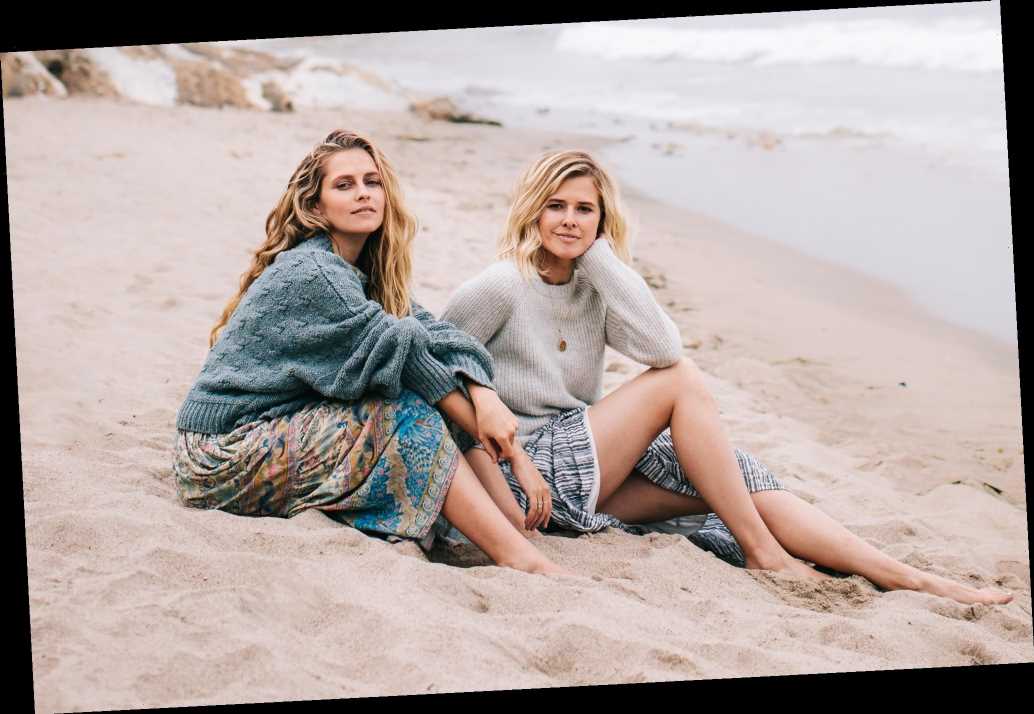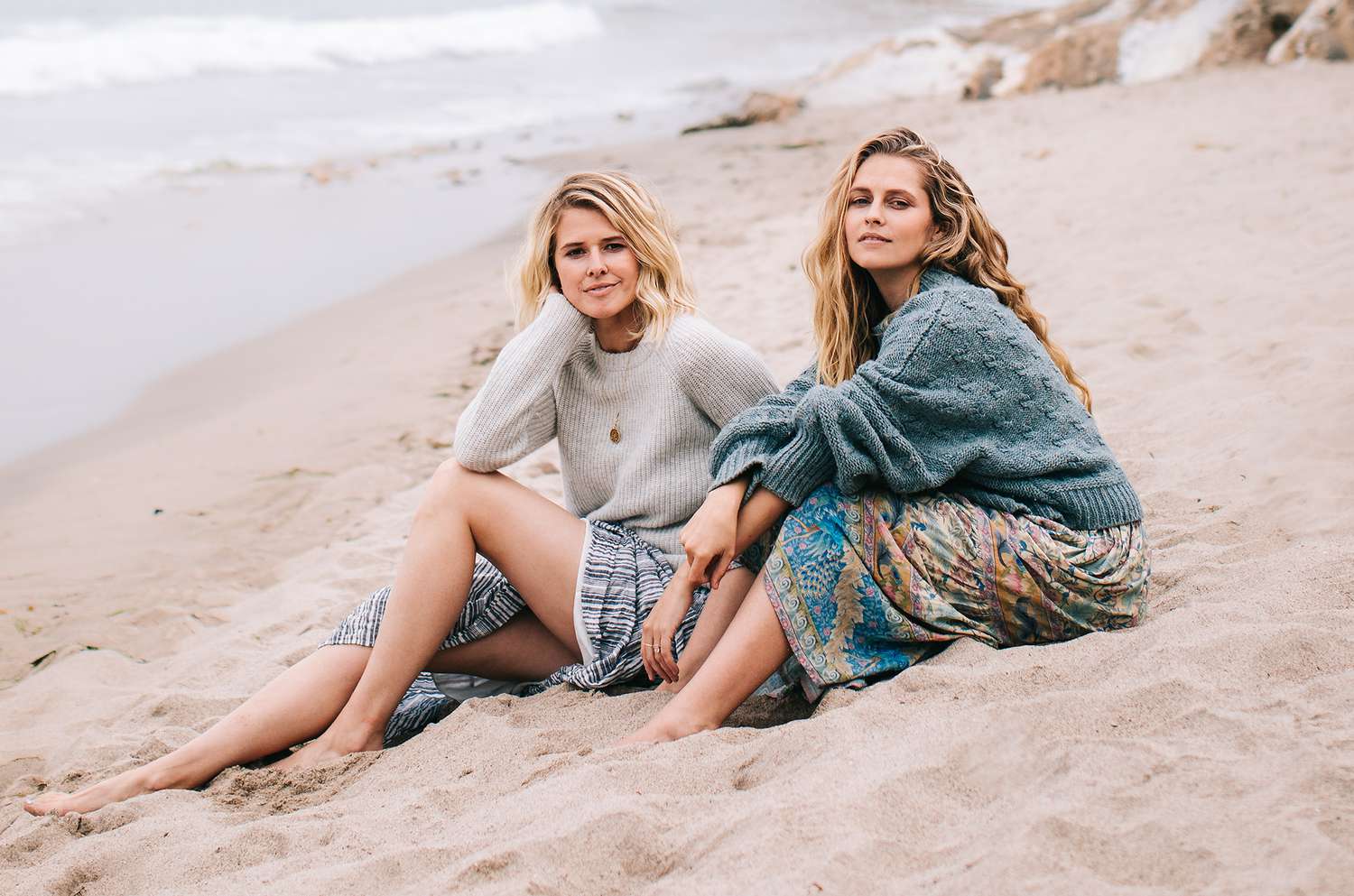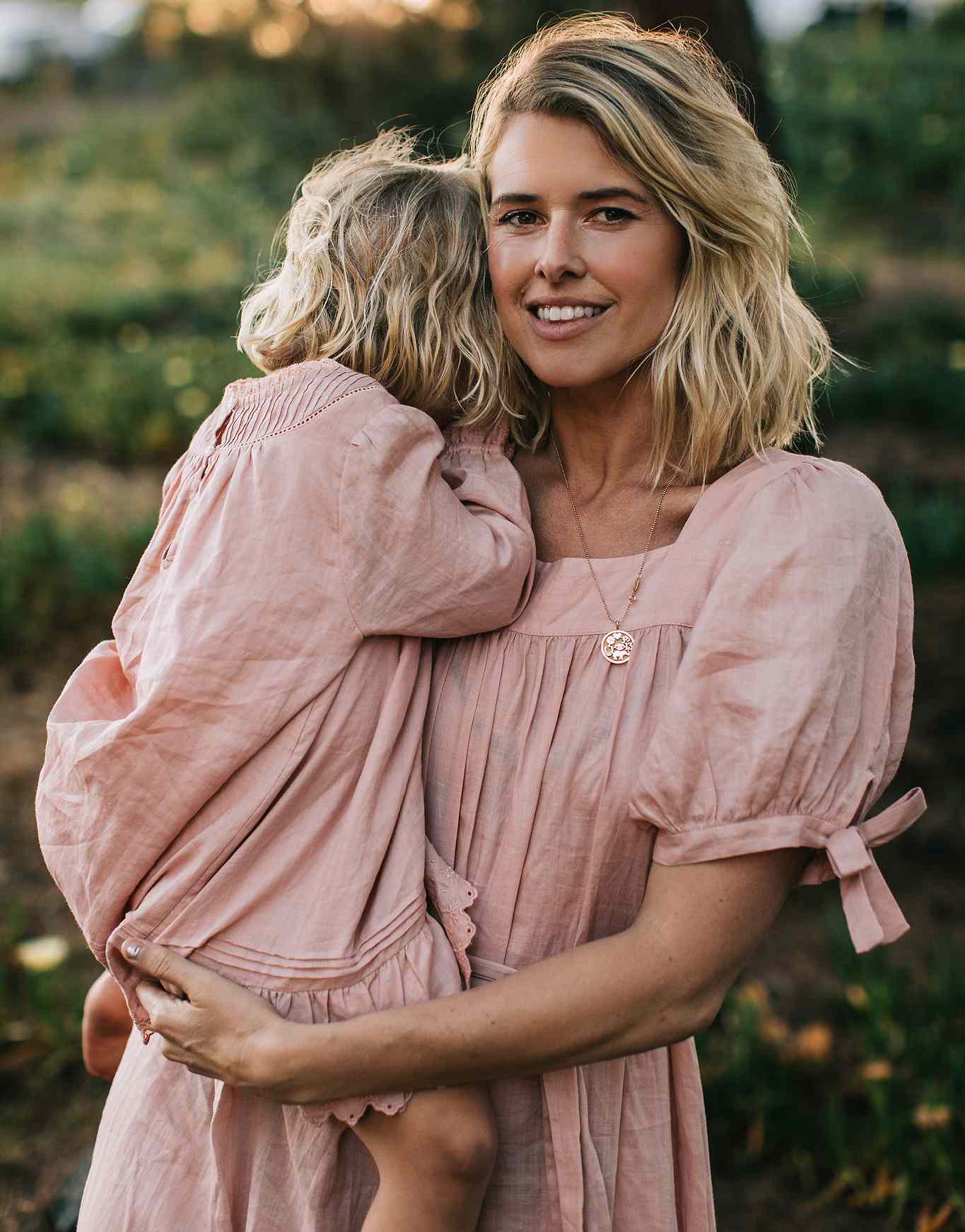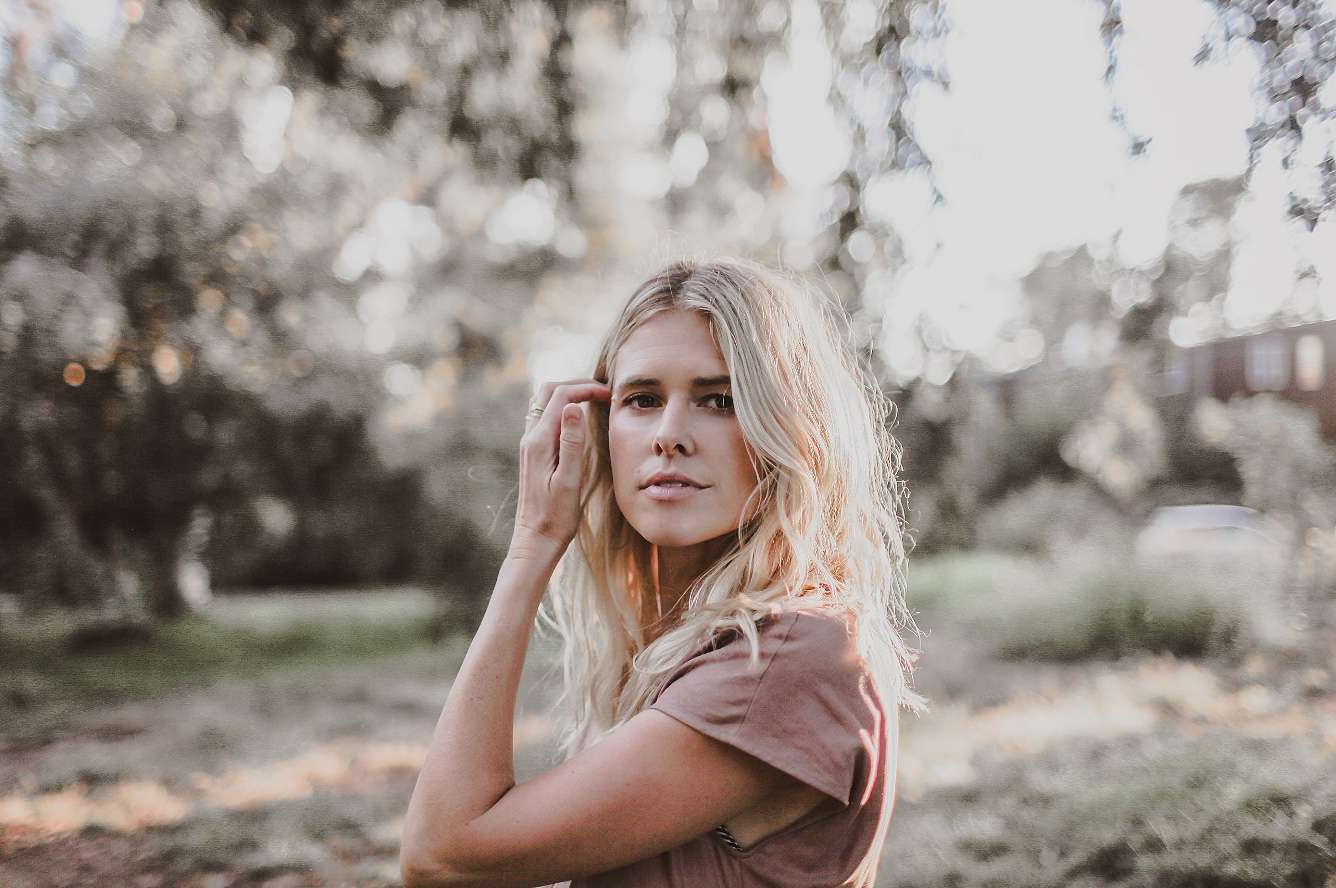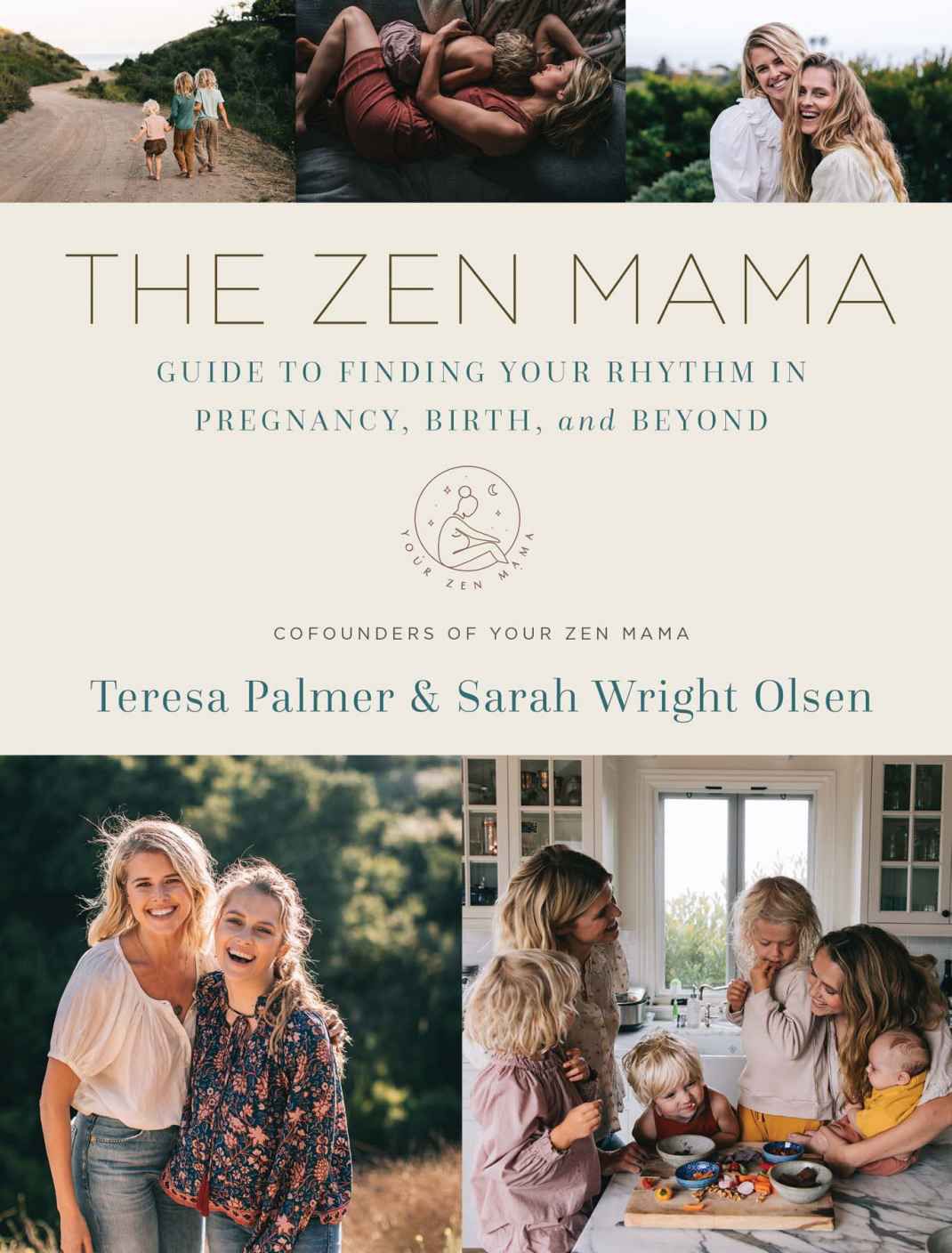Teresa Palmer and Sarah Wright Olsen have supported each other through the joy and pain that comes with motherhood, including pregnancy loss.
Now, the actors and co-founders of the Your Zen Mama blog, are sharing their stories in a new book that encompasses motherhood — from infertility to postpartum — and advice so parents and little ones can be healthy and "zen(ish)."
"We want it to feel like we're giving you a big warm hug, and we are being encouraging and supportive and uplifting," Palmer, 35, says in a joint interview with Wright Olsen, 37, about The Zen Mama Guide to Finding Your Rhythm in Pregnancy, Birth, and Beyond, which published on Tuesday.
"We also really hope that women will take away from the book that they need to let their mama intuitive voice be the loudest voice they listen to," she continues. "Take what works for you, and leave the rest."
Between them, the women are raising seven children. Palmer, who stars alongside Matthew Goode in the hit show A Discovery of Witches, is mom to Bodhi, 7, Forest, 4, and Poet, 1, and stepmom to Isaac, 11. She and husband Mark Webber are currently expecting their fourth baby together.
Wright Olsen, who has starred in Mad Men and currently appears in Netflix's Spinning Out, shares Esmé, 4, Wyatt, 7, and Winter, 6 months, with her NCIS: Los Angeles star husband, Eric Christian Olsen.
While they both consider themselves "pretty relaxed" moms when it comes to their parenting style, they've also ridden out storms together. In 2015, Palmer says she suffered a pregnancy loss, which she shares in The Zen Mama Guide.
Years later, while writing the book together, Wright Olsen says she also experienced a pregnancy loss — and she turned to her friend and her words for comfort.
"I actually suffered a pregnancy loss while we were writing the book. Teresa had written the pregnancy loss chapter in her voice," says Wright Olsen. "I did a disclaimer at the beginning that said, 'This is how you can support someone and be a good friend.' And 'Don't shy away from them, it makes them feel even more isolated.' Then in the process of editing, I actually had a pregnancy loss."
The star continues: "I called Teresa, and went back and I read all the pages that she had written and all the different stories. It was something that really helped me to heal and made me feel so held."
For Wright Olsen, reading their draft after her pregnancy loss served as an "affirmation."
"It's so good that we [included a section on pregnancy loss] because it helped me in real time," she says. "So I knew that it would help someone else."
Keep reading for more from the candid joint interview in which the stars share about giving birth during the COVID-19 pandemic and their parenting styles.
PEOPLE: What kind of misunderstandings and misconceptions about pregnancy loss do you want to dismantle with your book?
PALMER: I had been through a pregnancy loss in 2015, and I remember that one of the saddest parts of it was that the pregnancy books that I had got out again for the second time and I was excitedly reading through, I suddenly felt kicked out of the club, because I lost my baby. In these pregnancy books, there was nothing about pregnancy loss. I just sheepishly put away all my pregnancy books again.
We want women to pick up this book and read it and feel so included in the process. If they're reading this book and they suffer pregnancy loss, they don't have to put this book away. They can continue reading this book. If they're struggling with infertility, they can continue reading this book. You hear pregnancy loss and you think of one particular thing, but there are so many specific types of loss. We just wanted to dedicate that time to writing about all of it.
PEOPLE: What helped you heal after you pregnancy loss?
PALMER: Probably just reaching out to my community, my sisterhood, who uplifted me and held my hand. I had told everyone at four weeks pregnant that I was pregnant. I had blabbed to the whole world, essentially. Then I had to go back and remember all the people I had told. But I felt really held by my friends.
WRIGHT OLSEN: I would say the same: hearing other people's stories and just talking to my friends. I wasn't aware of how many people in my life had experienced pregnancy loss at that point. But I do remember, after this weekend where I took a lot of time for myself to process what was happening, I came home to flowers on my doorstep from one of my friends who had also suffered pregnancy loss. Another one of my friends sent chocolate and a bottle of wine to my house. Someone else showed up at my door, and Teresa FaceTimed me. I was just like, "Whoa!" I honestly had no idea that that was a way that people show up for you when something like that happens. I've suffered different kinds of loss in my life, but never that, and [the support] was just so beautiful.
PEOPLE: Sarah, what was it like to give birth during the pandemic?
WRIGHT OLSEN: I was nervous… I'd had a home birth before with my first child. I kept thinking, should I go back to do a home birth again? Because I had planned a hospital birth and I just really love my doctor. My gut kept telling me that I wanted to be with my doctor at the hospital, even though it was COVID, which was crazy because I'm like the most locked down person. For me, it definitely felt like more of a medical setting this time around….
But it was still a beautiful birth. I'm so glad that I did it there. At the end of the day, I was safe and I went home and nothing happened. I was so grateful that I had my baby and she was healthy.
PEOPLE: Teresa, how is this pregnancy experience different from the others?
PALMER: I went in for a scan and the whole experience was so different. The signs everywhere saying you cannot bring a guest in, one person at a time in the waiting room. It was actually a very well-oiled machine….
It was funny, I got to see my daughter, not for the first time, but I guess for the first time in her full form, really looking like a baby now, and seeing her face. I was like, "Oh, this is so interesting. I'm doing this on my own." I'm so used to my other three babies, having my husband there getting all giddy and excited with me. So I FaceTimed him and I took video, but that is just a different experience too. It's quite isolating.
Way It Saved Me'
PEOPLE: What advice do you give to new moms in your book? Especially as they navigate physical and emotional challenges after giving birth?
PALMER: We have a postpartum section of the book where we focus on how your mind is affected. When your lows feel too low, what do you do? Who do you turn to? Who can you call? We write out very distinct symptoms and signs so people can actually read them and say, "Oh, this does sound like me. I am feeling like it's getting worse, not getting better again."
We talk about postpartum anxiety with dads, which is something that's not really talked about that much. The statistics are quite high in terms of dads navigating anxiety after the birth of their baby. We talk about body image, we talk about newborn care, we try and cover the whole gamut of that postpartum experience because there's so many things that collide at once. You're also not sleeping, you have all these hormonal dips and shifts, your milk is coming in, you're trying to breastfeed. It's just a really challenging time for so many mothers.
WRIGHT OSLEN: I had postpartum anxiety and the craziest intrusive thoughts that would happen to me. I didn't really understand it with my first [baby], but then as I started talking to a postpartum therapist about it, I was like, "Oh, that's what this is." I'd been having these crazy, intrusive thoughts about something bad happening to my child in the middle of the night. She explained it to me and she's like, "It's totally normal." It really takes [the pressure] off your shoulders when you hear that you're not the only one that that happens to.
PEOPLE: How would you describe your parenting style?
PALMER: Sarah is my No. 1 go-to when there's something going on with the kids. I'm like, "Oh my goodness, it's crazy over here. How do I deal with this?" Because we're so like-minded in the way we parent … I like to say we're with both pretty relaxed. We're pretty chill. I try and keep things fun and light.
It's important to set boundaries with your kids, but we try and make things an adventure and be as understanding and compassionate to the children as possible. … Sarah and I don't practice traditional discipline with our kids. It's definitely more of a conscious-minded, gentle discipline and actually just talking to them, communicating with them, talking about their feelings.
WRIGHT OLSEN: For example, I told my daughter the other day, "I'm feeling really nervous, I have this meeting. I'm feeling it right here, like tension in my chest, and I'm feeling nervous. What do you think I should do about it?" And my daughter, who's now 4 years old, she was like, "Well, you have to do the meeting, right?" I was like, "Yeah." She goes, "So I think you need to take a deep breath into where you're feeling it." And she was like, "And then exhale." And she said, "And you got to tell yourself, we got to just keep moving forward." And I was like, "I love that, that's a great thing! Okay, I'm going to do it." [Then she said,] "And really? At the end of the day, it doesn't matter."
Teresa and I both follow this philosophy with our kids: Meet the needs as the needs arise.
The Zen Mama Guide to Finding Your Rhythm in Pregnancy, Birth, and Beyond is on sale now.
Source: Read Full Article
